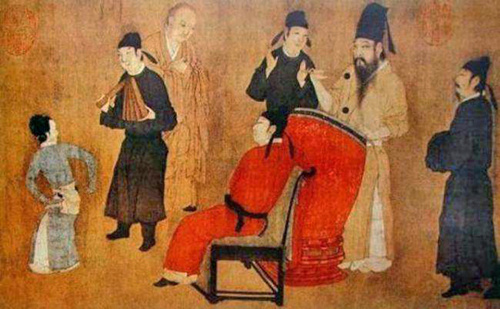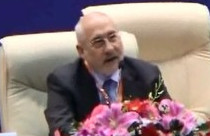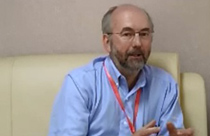Focus on historical dimension of sociology
Author : PAN YUEFEI Source : Chinese Social Sciences Today 2018-01-04

Historical sociology is the interdisciplinary approach to sociology and history, containing attributes of both disciplines. Now history has once again brought sociology to the forefront of academic research.
Feng Shizheng, party secretary of the School of Social and Population Studies at Renmin University of China, said history is important for sociological research because time plays an important role in the development of human society. The more remarkable the changes in society over time, the more important historical research becomes. At present, China is experiencing rapid transformation, and the historical awareness of sociological research must be emphasized.
Zhang Hao, deputy director of the Rural and Industrial Sociology Research Office of the Institute of Sociology at the Chinese Academy of Social Sciences, said social change is the fundamental concern of sociology, and its historical dimension represents its “inner genes.”
Ying Xing, dean of the School of Sociology at the China University of Political Science and Law, said when we advocate for historical sociology, the first task is to rekindle the imagination of sociology in the historical perspective of classical sociology, and apply this imagination to China studies. The historical dimensions and pragmatic realities of sociology do not contradict each other. Instead, they integrate with one another and expand upon each other. Emphasizing the historical dimension of sociological research helps resolve the pragmatic issues affecting sociology studies, and allows research to better understand reality by investigating the internal and external links between ancient and modern times.
Feng said history focuses more on historical facts while sociology pays more attention to historical knowledge. Only by combining historical facts with knowledge can we deepen our study. Historical sociology emerged because sociology values historical knowledge, and based on this approach it can further expand the scope of research.
Ying said historical sociology and history have different research methods. The question of which historical aspects sociology chooses to study is based on the needs of sociology, rather than the pursuit of reality of positivist historiography. Sociology and history take different approaches in dealing with gaps in historical materials and historical narratives. History, to sociology, is by no means a material to construct a theoretical framework, but rather an intrinsic vitality. Historical sociological studies should strive to discover issues and explore materials at the same time. It should respect the tradition of positivist historiography and try to collect first-hand historical materials in accordance with the standards of positivist historiography.
Ying said the current study of historical sociology has two major directions. One is to study traditional Chinese society from a sociological point of view, focusing on rites and the official system as well as social changes. The other is to investigate modern Chinese society from the perspective of sociology, with a research focus on the exploration of social and intellectual history.
Zhang said the development of historical sociology in China is now facing rare opportunities and may make breakthroughs in Chinese sociology. After a major historical change in the Spring and Autumn Period and the Warring States Period, Chinese society has generally remained in a stable social structure despite alterations of dynasties. A more radical social change did not come until the arrival of the communication between the East and the West in modern times. In particular, the 1911 Revolution, the New Culture Movement, the New Democratic Revolution, the socialist revolution and construction, and the reform and opening up are all important historical footprints.
“Although historical sociological research has achieved gratifying results in the past two years, there are still many deficiencies,” Ying said, adding that some studies lacked a keen eye for potential problems and did not have enough patience with historical materials. Thus the research tends to be fragmented or shallow. It is necessary to abandon the “disciplinary habits” of sociology and study the profound academic tradition of historiography, so as to achieve in historical sociology and form new academic tradition.
Feng said three major problems have to be solved in the study of historical sociology. First, there are many sectional and static analyses of structural functions, whereas relatively few studies on society are born in the twists and turns of history. Second, the emphasis on history aims not to respect the past, but to examine the variations within things and their laws in a broader vision. Third, there are no established concepts, theories and methods as to how to study history from sociological perspectives. It is better to start with specific cases that lead to final establishment.
Interview with Wang Gungwu on significance of studying overseas Chinese
Wang Gungwu is a distinguished Australian historian who studies overseas Chinese. He currently works at the Faculty o...
-
On the rat/mouse of the zodiac
2020-02-20
-
Regional development calls for Huaihe culture’s soft power
2020-01-10
-
Archaeological discoveries unveil Maritime Silk Road
2020-01-06
-
China’s industrial art printing
2019-12-10
-
Yue-Gan Ancient Road: A journey into Hakka history
2019-05-13
-
The Lantern Festival in Dream of the Red Chamber
2019-02-18














 2011-2013 by www.cssn.cn. All Rights Reserved
2011-2013 by www.cssn.cn. All Rights Reserved